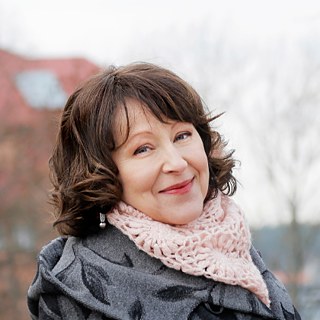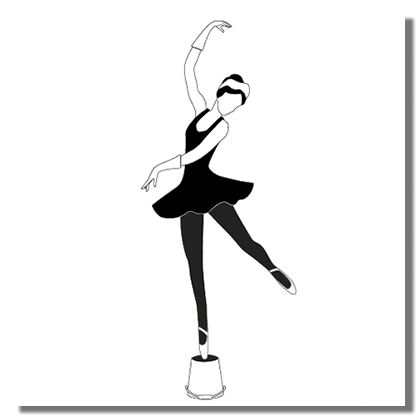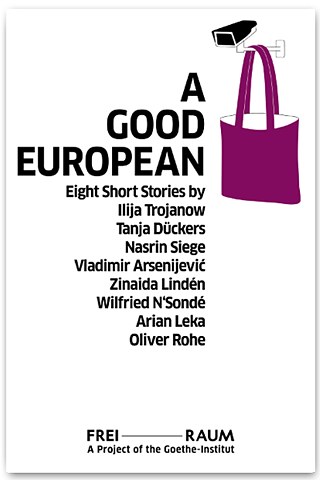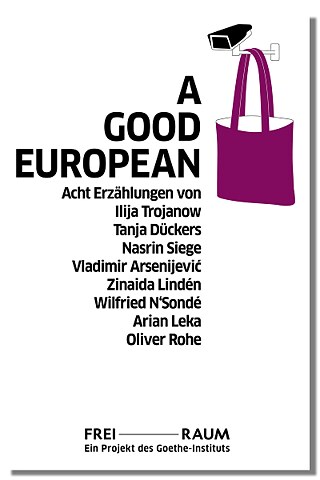Zinaida Lindén
A Good European
By Zinaida Lindén
- I am just learning how to be a good European.
She is as petite as a porcelain doll. Too much makeup. A short, tight dress. A sweaty handshake. She is anxious and tense. Not exactly the academic type. She took her PhD in Nizhny Novgorod – or was it Veliky Novgorod? – and taught European literature there. Now she hopes to do another doctorate again, here in Europe.
- What do you mean?
The Nordic professor raises his eyebrows.
- A good European – as opposed to what?
- I want to become a good European… researcher.
Her English is pretty bumpy. Not exactly suitable for a scholarly seminar.
Among the writers she mentions in her presentation is Michel Houellebecq. She has no trouble spelling out his name, but seems a bit unsure when she talks about his controversial novel Submission. She would so much like to do that correctly, European.
- Before I moved here I had no idea about the level of… tolerance.
She is odd, doesn’t know the rules. Doesn’t even know how to dress. These Russians – must they always, at any appropriate or inappropriate occasion, so exhibit their femininity?
She smiles guiltily and hurries on with her lecture. Now she’s talking about postmodernity.
- Dans ‘Simulacres et Simulation’ Jean Baudrillard analyse comment notre société postmoderne a perdu le contact avec la réalité…
Her French is fluent. Does that make her a European?

Here she keeps hearing that she is not a European. Doesn’t come from Europe. Because Europe would stand for something higher, better. Now it’s time to roll up your sleeves and learn. She’ll certainly succeed, she’s always been so good. A good doctoral student, a good teacher, a good wife. Good at pancake baking and shirt ironing. And yet her husband left her for a younger woman. And she has a new, sweet little daughter.
In Russia, she had no future on the partner market. No Russian man wants a divorced mother with a small child. Luckily, she has kept her freshness despite her thirty-seven years. Luckily, she met Leif at a conference in St. Petersburg. Leif is a good European, a good stepfather to her daughter, a good son who often visits his ailing father in a good European facility. Luckily, she was allowed to bring her little daughter here to the north to give the child a good, European future.
A pity her mother will never get this.
Her mother, who still lives at home and suddenly went blind six months ago. Although she had diabetes, blindness came without warning. There followed an unplanned trip home, many nerve-wracking hospital visits, several unsuccessful attempts to engage the neighbours, some stressful meetings with an overburdened social worker, and finally a private arrangement with a very religious but suspicious home-help. Now she has to manage and arrange, support and organize, do and do. From a distance. Remote control the everyday life of the old woman, by telephone and computer.
How is she going to be able to write a good European dissertation when her entire waking time is spent thinking about mama?
According to the family reunification law, mama doesn’t belong to the family. Until recently, older non-Europeans who had no relatives in their home country had the opportunity to move here to the north. “Regulation Pertaining to the Last Surviving Relative”, it was called. Her mother’s last surviving relative – that’s her. But the clause has been removed from the Alien Law to prevent social tourism. So that hordes of seniors don’t invade fortress Northern Europe. Some non-Europeans with dementia or who have been victims of strokes have even been expelled.

“Too bad your mother isn’t politically active”, one or two good Samaritans sighed. “Then you could apply for asylum.”
There is a coffee break.
She tries to talk to a Polish linguist, but he ignores her. Talk to this slut from the land of the oppressors? That was all he needed!
The Nordic professor stands in line for the coffee behind her. But not too close: if you sit on the Equality Committee of the university you have a reputation to lose.
The Russian woman turns around. The professor leans forward politely.
Did you perhaps dance ballet as a child? he asks.
Mais oui!
A happy smile spreads across her face and she shows her small, neat teeth. The first French words she learned were pliés, relevés, battement tendu ....
You can think what you will of the Russians, but they can dance.
The professor nods gently. As an academic, however, one must think critically. Can she think critically? A person as exotic as her?
A lady in a sari and with a big red dot on her forehead, standing in line in front of them, says with sudden delight:
I love Tchaikovsky’s ballet music! Tchaikovsky’s my favourite European composer!
The white teeth of the lady in the sari stand out clearly in her dark face. She is a Bengali. She specializes in children’s literature. She has also lived here for two and a half years. Her English is perfect. Is that what makes her a European in times of Brexit? She is still only an Indo-European: Bengali belongs to the Indo-European language family. This has been proven by comparative linguistics.
- Would you like to meet over a cup of tea sometime?
The women exchange phone numbers. In the Bengali culture too you take care of your old parents back at home. The lady in the sari surely knows what it’s like to manage and arrange, to do and to do. To become her mama’s mama. To be the “last surviving relative”.
Good to discuss this at a meeting. Talking helps.
- Thank you for kindness, says the Russian in her lumpy English. Nothing is stranger than kindness. The kindness of strangers.

PDF and as E-PUB:

Eight Short Stories
Eight Short Stories
© Goethe-Institut
© Goethe-Institut